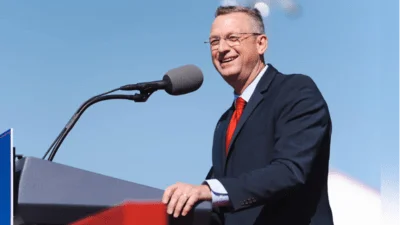WASHINGTON, DC-Ways and Means Subcommittee on Trade Ranking Member Jim McDermott (D-WA), issued the following statement today at a hearing on the Administration’s trade policy agenda:
“The focus of this hearing is on President Obama’s trade policy agenda. In my view, the Administration’s record over the past two years demonstrates a clear commitment to change the course of trade policy. And when you look back at the last Administration’s trade policy, it becomes abundantly clear that there is no other way to move forward on trade policy than by changing it.
“Let’s recall where we were just a few years ago. As one commentator noted, the political base for Bush administration trade policy had in fact crumbled well before the 2006 elections.’[1] With CAFTA, House Republican leadership and the last administration had to dole out a number of promises, unrelated to the agreement, and to apply considerable pressure to get a favorable vote. One Republican Member reportedly stated that the Republican leadership would ‘twist some Republican arms until they break in a thousand pieces’ to get the votes they needed. The agreement passed the House by just two votes. And a very small FTA with Oman passed by only 16 votes.
“Perhaps the clearest example of a stalled trade agenda was the trade agreement with Peru. The United States concluded an agreement with Peru in 2005, but it was never put to a vote in the Republican-controlled 109th Congress.
“The Peru FTA was able to move forward only after we changed trade policy for the better in 2007 - such as by incorporating meaningful, enforceable labor and environmental obligations in the agreement, and by providing better access to affordable medicines for the poor in Peru. With those changes, the Peru FTA passed the House by a vote of 285 to 132 - and without the ‘arm twisting’ or side deals that were necessary to pass previous agreements.
“So let’s not fool ourselves: We can’t move forward on the trade agenda by going backward. The only way forward is by addressing - no longer ignoring - legitimate issues and concerns where we find them. And there are very legitimate concerns about the effect that trade, and trade deficits, can have on middle class Americans (which is why I am deeply disappointed that Trade Adjustment Assistance is set to expire at the end of this week). There are also legitimate concerns about violence and impunity against labor leaders in Colombia; about Panama’s status as a tax haven; about one-way trade in Korea’s auto market; and about a meager and unbalanced WTO Doha package.
“Fortunately, the last two years demonstrates that Ambassador Kirk and this Administration are actively addressing the outstanding issues. Whereas the last Administration ignored concerns about the auto provisions of the Korea agreement, this Administration fixed that text in December. Whereas the last Administration ignored concerns over violence and impunity in Colombia (and even tried to force the agreement down the throat of Congress before changes had been made), this Administration is actively working to address those complex issues. And whereas the last Administration came close to signing off on a very bad WTO deal, this Administration is insisting on an ambitious and balanced deal.
“That is the only realistic way to move forward with U.S. trade policy. I hope we can work on a bipartisan basis, and closely with the Administration, to continue to move forward."









